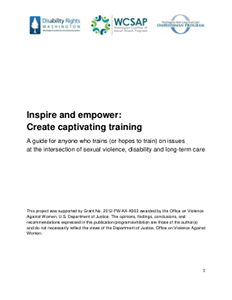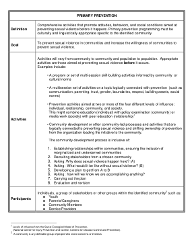Messaging sexual violence prevention is such an important part of our overall strategy, but it can be tricky to create a compelling and hopeful pitch for prevention that will reach a broad audience, while also navigating deeply embedded rape myths & victim blaming.
This the second part in our series on messaging prevention. For this series, we draw from the guidance and toolkits developed in partnership by Raliance and the National Sexual Violence Resource Center with the…
- Prevention
- Working With Survivors
- Accreditation
- Advocacy Areas
- Culturally Specific
- Legal Resources
- Management
- Medical Resources
- SA Protection Order
- Subpoenas
- Support Groups
- Tech Safety
- Resources
- Policy
- Training

